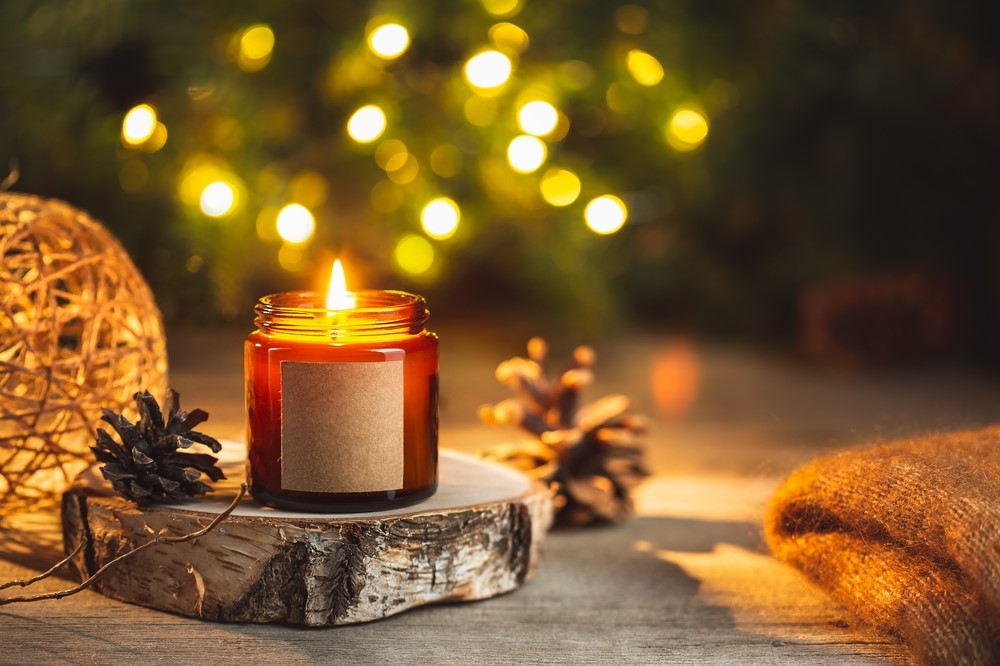Tips for Holiday Fire Prevention

The holidays are a time for joy, celebration, and creating memories with family and friends. They’re also a time when fire risks increase significantly. From decorative lights and candles to cooking feasts for loved ones, the holiday season brings its fair share of fire hazards.
Let’s look at how to prevent fires during the holidays and how to safely handle an electrical fire if it occurs.
Understanding holiday fire risks
Awareness is the first step toward prevention. Here are a few culprits:
- Decorative lights and electrical overloads
Festive lights brighten the season, but overloaded electrical outlets or frayed wires can be dangerous. Old decorations or improper storage can lead to damaged cords that spark fires. - Candles
A glowing candle adds ambiance, but it’s a leading cause of holiday fires. Leaving candles unattended or placing them near flammable objects like curtains or holiday decorations can be disastrous. - Cooking accidents
With so much cooking and baking during the holidays, kitchens are a hot spot for potential fires. Unattended pots and pans, grease fires, or malfunctioning appliances can quickly escalate. - Christmas trees
Live Christmas trees are beautiful but highly flammable if they dry out. Paired with hot lights or candles, they can ignite within seconds. - Space heaters
In colder climates, space heaters are common during the holidays. However, they can cause fires if placed too close to flammable materials like blankets, furniture, or holiday decorations.
Tips for holiday fire prevention
Inspect decorations carefully
- Check lights for frayed wires, broken bulbs, or loose connections before use.
- Avoid overloading electrical outlets or using multiple extension cords.
- Use LED lights—they’re energy-efficient and generate less heat.
Be cautious with candles
- Place candles on stable, heat-resistant surfaces.
- Keep candles at least 12 inches away from flammable objects.
- Never leave a candle burning in an unattended room.
- Consider using flameless, battery-operated candles as a safer alternative.
Practice kitchen safety
- Never leave cooking unattended, especially when frying or grilling.
- Keep flammable materials like dish towels, oven mitts, and paper towels away from the stove.
- Invest in a fire extinguisher and keep it within easy reach in the kitchen.
Maintain Christmas trees
- If you’re using a live tree, keep it well-watered to prevent drying out.
- Place the tree at least three feet away from heat sources like fireplaces or radiators.
- Turn off decorative lights when leaving the house or going to bed.
Use space heaters safely
- Keep space heaters at least three feet away from flammable materials.
- Ensure the heater has an automatic shut-off feature in case it tips over.
- Plug space heaters directly into a wall outlet, not an extension cord.
Test smoke alarms
- Ensure all smoke alarms are functional by testing them monthly.
- Replace the batteries regularly and replace the entire unit if it’s over 10 years old.
Create an Emergency Plan
- Establish a fire escape plan for your family and practice it regularly.
- Identify at least two exits from every room and designate a meeting spot outside.
How to handle an electrical fire safely
Despite your best efforts, accidents can happen. Electrical fires, in particular, require specific handling to ensure safety.
What causes electrical fires?
Electrical fires typically occur due to:
- Faulty wiring or damaged electrical cords.
- Overloaded circuits or extension cords.
- Malfunctioning appliances.
Steps to put out an electrical fire
Here’s what to do if you encounter an electrical fire:
Cut off the power
If it’s safe to do so, unplug the device causing the fire or turn off the power at the circuit breaker. This step is crucial to stop the flow of electricity and prevent the fire from spreading.
Use a fire extinguisher
Use a Class C fire extinguisher specifically designed for electrical fires. If you don’t have a Class C extinguisher, some multipurpose extinguishers (labeled ABC) are also suitable.
Aim at the base of the flames and sweep side to side until the fire is extinguished.
Never use water
Water conducts electricity, which can lead to electrocution or worsen the fire. It’s essential to avoid water at all costs.
Smother the fire (Small Fires Only)
If the fire is small and manageable, you can use a blanket made of non-flammable material (like wool) to smother the flames. Be sure to keep your hands and face protected.
Call emergency services
If the fire cannot be controlled quickly, evacuate immediately and call 911. Never attempt to fight a fire that is growing rapidly or producing thick smoke.
After the fire
Have an electrician inspect the affected area and your home’s electrical system before restoring power.
Replace damaged appliances, outlets, or wiring to prevent future incidents.
Peace of mind with fire safety
By taking these precautions, you can significantly reduce the risk of fire in your home. Remember to stay vigilant, especially when it comes to decorations, cooking, and electrical safety.
Should an emergency arise, knowing how to handle it calmly and effectively is just as important as prevention. Ensure that you and your family are prepared by reviewing fire safety practices together.
The key to a safe holiday season is being proactive. Make fire prevention a part of your holiday preparations, and you’ll be set to enjoy the festivities worry-free.
Happy holidays—and stay safe!



